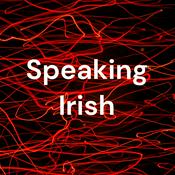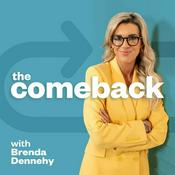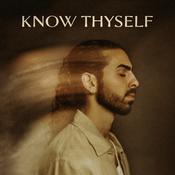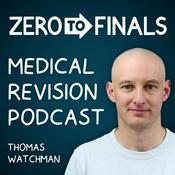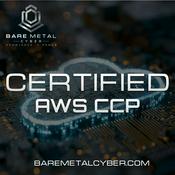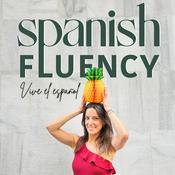611 episodes
- Theresa Duong on episode 609 of the Teaching in Higher Ed podcast.
Quotes from the episode
“All we’re really trying to do is create these conditions that can help our students flourish and thrive within our classrooms while maintaining the rigor of our work.”
– Theresa Duong
“I felt like I could thrive in my PhD program because I had these people who kept pushing me to go and kept pushing me to take care of myself.”
– Theresa Duong
“Pedagogy, the formal definition in my mind, is this art and science of teaching and learning.”
– Theresa Duong
“To me, wellness is really about thriving and flourishing in the work that you’re doing.”
– Theresa Duong
Resources
Pedagogical Wellness | UCI Division of Teaching Excellence and Innovation
Pedagogical Wellness: A New Direction in Educational Development by Theresa Huong (Theresa) Duong, Andrea Aebersold, + Matthew Mahavongtrakul
Okanagan Charter
UCI Health Promoting University
Pedagogical Wellness Day- Interest Form
Artmakers Club with Lisa Bardow
Calm Strips
Forest App Overcoming the Curse of Expertise and Other Ways to Be Inclusive in Our Teaching with Sheila Tabanli
05/2/2026 | 41 mins.Sheila Tabanli shares ways to overcome the curse of expertise and other ways to be inclusive in our teaching on episode 608 of the Teaching in Higher Ed podcast
Quotes from the episode
“I suggest, sign up to a course that you have no idea, and then we’ll talk later. In other words, feel what it means to be a novice.”
– Sheila Tabanli
“An expert in a field doesn’t necessarily mean they will be able to effectively teach that content.”
– Sheila Tabanli
“There are differences between how experts and novices look at this content.”
– Sheila Tabanli
“We can still slow down. We can still show how an expert solves a math problem without sacrificing from the rigor or the content.”
– Sheila Tabanli
Resources
Guidebook for Reducing the Novice-to-Expert Perception Gap in Mathematics to Increase STEM Diversity, by Sheila Tabanli
Minding the Perception Gap in College Math Classrooms and Beyond, by Sheila Tabanli for Inside Higher Ed
Last-Day Activities Ideas from Sheila Tabanli, Featured In The Chronicle of Higher Education Teaching Newsletter
Fostering Active Learning and Metacognitive Skills in a Cognitive-Science Based Math Course, by Sheila Tabanli for the International Journal of Teaching and Learning in Higher Education
Powerful Teaching: Unleash the Science of Learning, by Pooja Agarwal and Patrice Bain
A Mind for Numbers: How to Excel at Math and Science, by Linda Oakley
Learning How to Learn: Powerful Mental Tools to Help You Master Tough Subjects, Dr. Terrence Sejnowski and Dr. Barbara Oakley
Episode 106: Undercover Professor with Mike Cross
College Matters Podcast- Josh Brake shares metaphors and other ethical considerations regarding AI on Episode 607 of the Teaching in Higher Ed podcast.
Quotes from the episode
“When you’re moving fast, it’s really easy to do things unreflectively and to make a poor decision without even realizing it.”
-Josh Brake
“The special thing about bicycles, at least in their non-electronic versions, is that they’re totally human-powered. So it’s all based on the energy that you put in, and it’s just transforming that energy, to make you more efficient and be able to move faster.”
-Josh Brake
“When you have something like an E bike, that augmentation can be used in a variety of different ways, so it can be used to actually extend your capacity.”
-Josh Brake
“It’s really this question about what’s the intention that you’re bringing to the technology when you come to the tool, what are the questions that you’re asking? And fundamentally, it’s a question of purpose and intention. Why are you using this?”
-Josh Brake
Resources
An E-Bike for the Mind: E-Bikes and What They Can Teach Us About AI, by Josh Brake
I Grew Up Oblivious About Grades. It Ruined Me. Now I’m on a Mission to Ruin You too, by Josh Brake
The Moral Hazards of AI Are Closer Than You Realize, by Josh Brake
We Are Teaching Humans: A 50,000-Foot View As We Enter a New Academic Year, by Josh Brake
On Bandwidth and Bottlenecks: AI Tools Help Us Go Faster, But Speed is Not All You Need, by Josh Brake
Technique’s Deception: How Jacques Ellul Helps Us Understand the Difference Between Education and Schooling, by Josh Brake
Clip – Final Advice from Suborno Isaac Bari
The Real World of Technology, by Ursula Franklin
Player Piano, by Kurt Vonnegut
College Matters Podcast - Karen Costa shares about An Educator’s Guide to ADHD on Episode 606 of the Teaching in Higher Ed podcast.
Quotes from the episode
Curiosity is just this sort of force of nature. So tap in to your students creativity, your students passions and interests as a way to support them in reaching and achieving those challenges that you also hold for them.
-Karen Costa
That’s a heavy thing for folks with ADHD to carry, that we are a burden on the other students in the classroom, that we are a burden on our teachers. And that is simply not true.
-Karen Costa
What we know now is that many times those are what are called stims in neurodivergent and ADHD and autistic communities. And those are actually a way that a lot of folks help themselves to stay present and regulated in their bodies so that they can direct their attention to the teacher or to the task at hand.
-Karen Costa
The best thing we can do to make the course real is as an instructor to be present in that online course.
-Karen Costa
Resources
An Educator’s Guide to ADHD: Designing and Teaching for Student Success, by Karen Costa
99 Tips for Creating Simple and Sustainable Educational Videos: A Guide for Online Teachers and Flipped Classes, by Karen Costa
Episode 577: Teaching and Learning When Things Go Wrong in the Classroom with Jessamyn Neuhaus
Snafu Edu: Teaching and Learning When Things Go Wrong in the College Classroom, by Jessamyn Neuhaus
Episode 578: Learning to Teach, Design, and Rest from Nature with Karen Costa
Community of Inquiry Checklist, from Karen Costa
Belmont University
The Canary Code, by Ludmila Praslova
Blackbird – The Harvard Opportunes
AP 100 Photos of 2025 The Defined the Year
Hard Core Literature - José Bowen shares about the second edition of Teaching with AI on episode 605 of the Teaching in Higher Ed podcast.
Quotes from the episode
I do think that we are going to have to figure out how to focus on student learning in an era where students have this new technology that will short-circuit the learning we want.
-José Bowen
My advice to people is that I know we’re overwhelmed, so don’t ask AI to do something you love. Ask AI to do something that you hate.
-José Bowen
The real problem with AI privacy is that now we have a tool that can mine all that, right? I’m more worried about AI as a tool for analysis and observation, and how that’s going to change the world in which we live.
-José Bowen
I think the potential is, you’re probably going to get more bias because people are going to use AI poorly. And so bias and privacy are two categories of ugly that are pretty big.
-José Bowen
Resources
Teaching with AI: A Practical Guide to a New Era of Human Learning, second edition, by José Antonio Bowen and C. Edward Watson
We Teach with AI Website
Brilliant (courses Bonni mentioned that she is taking)
José Bowen on LinkedIn
Bonni Stachowiak on LinkedIn
Shell Game Podcast
Boodlebox
Ethan Mollick on LinkedIn
Anna Mills on LinkedIn
Sarah Elaine Eaton on LinkedIn
Krys Boyd on NPR’s Think
More Education podcasts
Trending Education podcasts
About Teaching in Higher Ed
Thank you for checking out the Teaching in Higher Ed podcast. This is the space where we explore the art and science of being more effective at facilitating learning. We also share ways to increase our personal productivity, so we can have more peace in our lives and be even more present for our students.
Podcast websiteListen to Teaching in Higher Ed, anything goes with emma chamberlain and many other podcasts from around the world with the radio.net app

Get the free radio.net app
- Stations and podcasts to bookmark
- Stream via Wi-Fi or Bluetooth
- Supports Carplay & Android Auto
- Many other app features
Get the free radio.net app
- Stations and podcasts to bookmark
- Stream via Wi-Fi or Bluetooth
- Supports Carplay & Android Auto
- Many other app features


Teaching in Higher Ed
Scan code,
download the app,
start listening.
download the app,
start listening.




